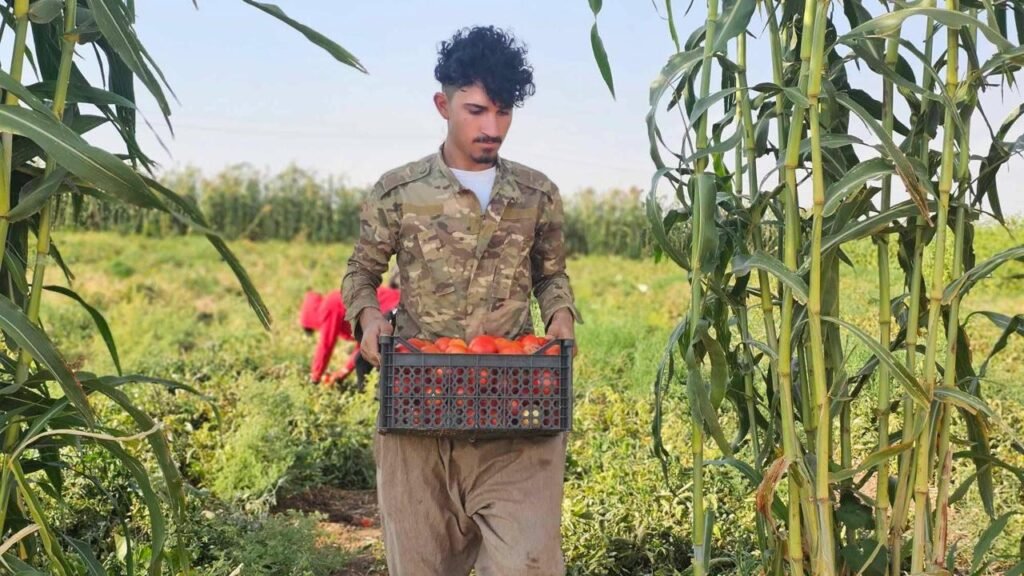
More than 2,000 tons of vegetables and fruits from the Kurdistan Region are exported daily to central and southern Iraq. Agriculture and wholesale market officials in the Kurdistan Region confirmed the steady flow of these products across Iraqi provinces.
From Erbil alone, over 1,000 tons of fresh produce are shipped every day. Meanwhile, Sulaymaniyah contributes approximately 800 tons daily. Duhok has exported more than 17,000 tons of local products to Iraq so far this year. Farmers with proper documentation from the Kurdistan Region’s agriculture directorates face no restrictions at Iraqi checkpoints.
Rajab Haji Aziz, President of the Erbil Wholesale Market Council, told Rudaw Media Network, “Daily, between 200 to 300 export permits are issued for local products sent to central and southern Iraq.” A senior official from Erbil’s General Directorate of Agriculture added, “These permits ensure farmers encounter no issues at Iraqi government checkpoints.”
Cargo carriers transporting vegetables and fruits vary in size from 2 tons to 15 tons. Aziz explained that if the shipment exceeds 15 tons, transportation obstacles and customs duties often arise.
Potatoes, onions, lettuce, turnips, cucumbers, tomatoes, eggplants, okra, beans, and cabbage are among the main Kurdistan Region vegetables and fruits exported to other Iraqi provinces. Sarwar Ali, head of the Sulaymaniyah Wholesale Market Union, said, “Daily, we send approximately 800 tons of local products, mainly cucumbers, which total over 500 tons.”
Duhok also plays a vital role, exporting hundreds of tons of local vegetables and fruits daily. Ahmad Jamil, General Director of Duhok Agriculture, confirmed permits are issued daily based on farmers’ requests. According to Duhok Agriculture, 17,100 tons of produce have been exported so far this year. Last month alone, 11,865 tons left the region.
In contrast, products from Halabja are not directly transported to central and southern Iraq. Instead, most local produce is taken to Sulaymaniyah’s wholesale market before export.
To protect local farmers, the Ministry of Agriculture and Water Resources in the Kurdistan Region bans import of similar products during peak seasons.
In conclusion, the Kurdistan Region vegetables and fruits export remains a crucial economic activity, supporting farmers and meeting the demand in central and southern Iraq. This ongoing trade strengthens ties between the regions and boosts local agriculture.
